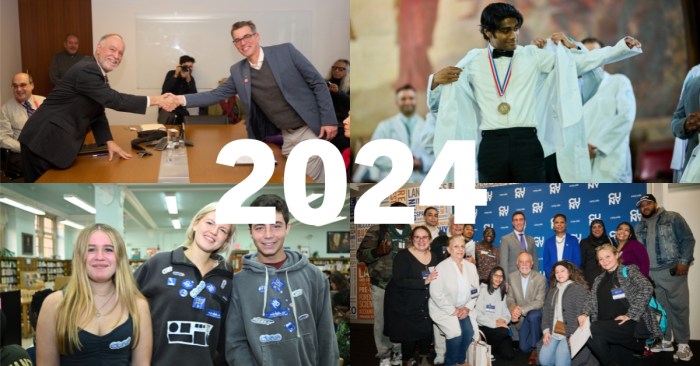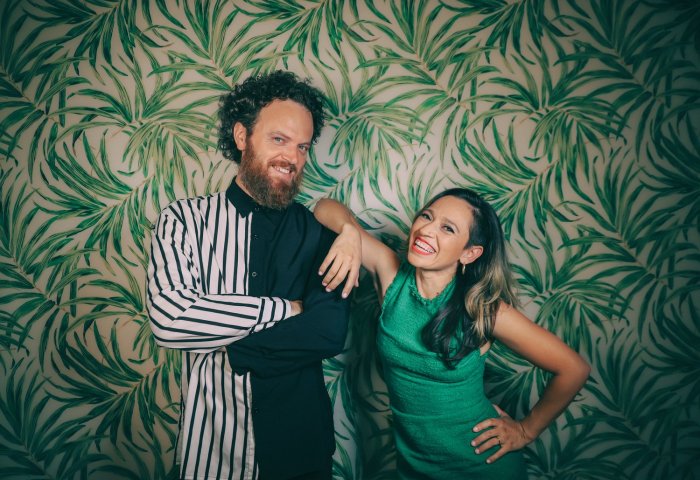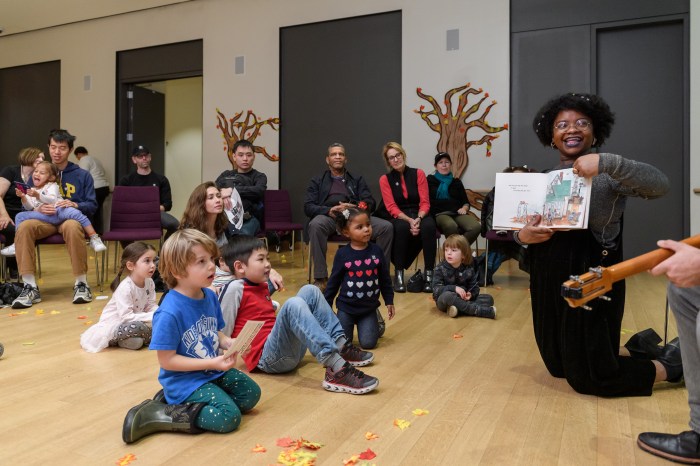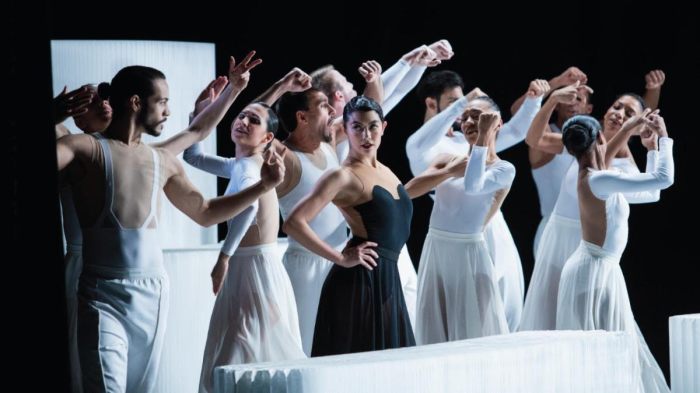CUNY student Seira Garcia was 17 years old when a degenerative hip condition forced her to abandon her passion for playing basketball.
Another CUNY student, Errol Samuels, also thought his days of playing on basketball courts were finished after he suffered a paralyzing accident when he was 20.
More than a decade later, both Queens College students are playing wheelchair basketball in CUNY’s Inclusive and Adaptive Athletics program, which launched in 2017 as an opportunity for some of the 10,000 CUNY students with disabilities to participate in competitive sports. The teams are open to CUNY students with disabilities at all of CUNY’s 25 colleges.
Today, Garcia, 26, is an urban studies major who earned a U.S. national team tryout for women’s wheelchair basketball, the first and only CUNY student-athlete in any sport to receive an invitation.
Samuels, 31, who is studying finance, is on his second season with the men’s team and was recently featured in USA Today for his grit in adjusting to the rigors of wheelchair hoops.
Many universities offer recreational sports for students with disabilities, but CUNY is one of only 12 Universities nationwide to offer competitive, intercollegiate adaptive sports. The wheelchair basketball program, which began playing competitively in 2019, is the only program of its kind on the Eastern Seaboard, and CUNY is one of only six Universities in the nation that offers competitive women’s wheelchair basketball. The Inclusive and Adaptive Athletics program also includes wheelchair tennis and hopes to add swimming, diving and track and field.
“The power of sports is to unite communities and allow individuals to grow and show who they are. Now, we’ve made sure that many more CUNY students have an opportunity to share in that experience,” says Ryan Martin, CUNY director of inclusive and adaptive sports, a former wheelchair basketball athlete himself who played professionally in Spain and France.
Wheelchair basketball was the first sport introduced with the advent of intercollegiate adaptive sports in 1970, under the auspices of the National Wheelchair Basketball Association (NWBA), the governing body of wheelchair basketball.
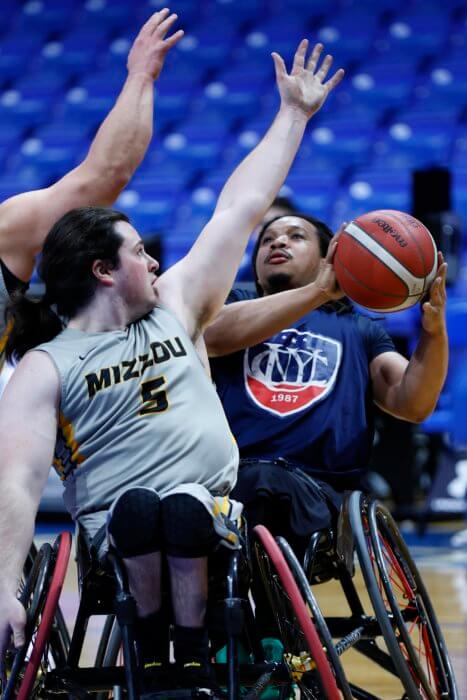
Martin, a former NWBA All-Star, arrived at CUNY in 2019 and arranged for the U.S. Olympic & Paralympic Committee to donate 10 high-performance wheelchairs for the team. The women’s and men’s wheelchair basketball teams are currently playing other local NWBA clubs as part of their preseason schedule. They tip off their intercollegiate campaign of about 25-30 games, playing host to Eastern Washington University and PennWest Edinboro on Jan. 20-21.
The effort to make CUNY a first-choice destination for student-athletes with disabilities aligns with our University’s diversity, equity and inclusion (DEI) mandate, but the program also has a positive impact on our colleges’ retention. Studies by adaptive sports researchers show that students with disabilities who participate in adaptive sports have a higher level of college completion and career success than their disabled peers who do not participate in athletics.
Through the adaptive sports program, CUNY will serve as a pipeline of talented graduates with disabilities to DEI-conscious employers in the city and state. This is a powerful synergy that aligns with CUNY’s key priorities of developing a more equitable workforce and an inclusive economy.
Garcia, who describes her time playing wheelchair basketball as “a moment of serenity where everything makes sense for 40 minutes,” will continue to compete for a spot on the U.S. national team. The Puerto Rico native plans to pursue an advanced degree in psychology and hopes to one day help unhoused people.
Samuels, who hails from Queens, plans to continue pursuing a career in the city’s Department of Education, where he works, and hopes to coach basketball in the future.
He is thankful for the program because the nearest other school with a competitive program is over 400 miles away in Edinboro, Pennsylvania. “Disabled athletes in New York,” he says, “can now stay home to attend one of the many CUNY schools, play at the collegiate level and help grow the program.”
As Ryan says of his players: “When their playing days are done at CUNY, they will have blazed a trail of athletic achievement and academic success. They will take their CUNY degrees and make an impact in the world.”




